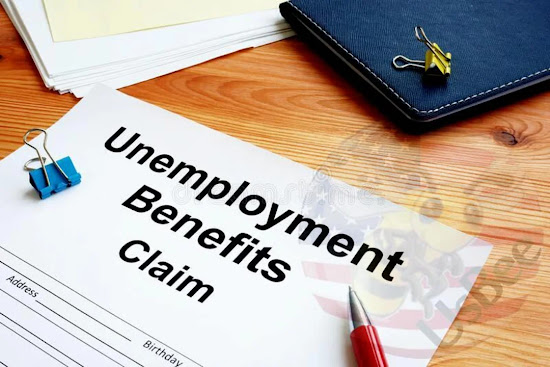Top 10 things you need to know about applying for unemployment benefits
What is unemployment insurance?
Unemployment and health insurance for the unemployed is a national insurance scheme that provides temporary income to unemployed or partially unemployed job seekers. This could be a young college graduate, a recognized training program participant, or someone who is temporarily unemployed before returning to work for the same employer.
In this context, unemployment benefits are covered through taxes paid by the employer. New Hampshire employees do not pay taxes under the unemployment program. What is an unemployment allowance? These are the actual benefits paid to people who are automatically or partially unemployed:
- Work in a protected profession
- I'm unemployed because of myself
- Meets admission requirements
- Complain within a given period.
Which profession is covered?
This is the job of an employer subject to unemployment and federal law in New Hampshire and other states. These employers pay the fund to pay the unemployment allowance.
What does unemployment without a ticket mean?
This means you didn't cause unemployment. example:
- Unemployment: Your employer fires you (and doesn't fire you).
- Reduce working hours for your employer or yourself.
- Severance pay does not prevent you from receiving severance pay.
When should I charge?
If you are completely or partially unemployed, you do not have to wait for your application.
* The request is valid in the week of submission.
* If you have received a large amount of severance pay
(3 months or more such as severance pay or vacation allowance), please consider waiting. This money will be lost.
Is there any reason why I can't receive the benefits?
You can apply for unemployment benefits at any time, but you must meet all the requirements to receive them. The administration considers the following factors when determining eligibility:
- Are you receiving unemployment benefits from other states or the federal government?
- Are you able to work, can work, and are actively looking for a job?
- Did you apply for a job or update your details before you were hired?
- Did you complain in time?
- Did you keep your promise?
- Is the reason for your absence a temporary dismissal or suspension of your organization?
- Why were you fired?
- Have you been dismissed disobediently?
- Have you been fired for the use of sugar or banned substances?
- Have you been fired for theft, arson, vandalism, assault, or threatened crime?
- Did you decline the actual job offer?
- Are you currently working full-time?
- Did you go out of business or close it?
Did you quit your job for good reason due to your employer?
Did you quit your job because of your family?
Have you ever stopped working or participated in a strike (industrial dispute)?
Top 10 things you should know about the unemployment allowance process
1. State the exact reason for unemployment
When applying for benefits, you need to tell the employer the exact reason you are leaving the labor market so that they can better evaluate your benefits qualifications. Failure to properly state the reasons for quitting your job can result in penalties for overpayments and fraud.
2. Enter the money you earned as your total income.
You must file your tax return in the week (before deduction) when your salary is paid, regardless of when it is paid. Failure to declare salary is a fraud.
I correctly declare my activities and income in a weekly format, such as self-employed, part-time jobs, agency jobs, etc.
3. Keep information up to date.
The United States Postal Service does not send unemployment insurance or other important documents related to unemployment.
If you move (even within the same city or state), you will need to change your address and update your phone number and email address.
4. Register via the job search system.
If you live in New Hampshire and are not exempt, you will need to register to work in the job matching system
It is required by law. Pre-registration is automatically created when you apply for benefits.
You can update your resume and find a job at https://nhworksjobmatch.nhes.nh.gov/vosnet/default.aspx.
However, if you do not live in New Hampshire, you will need to register for the state office.
5. Make sure it is available and actively looking for a job.
To receive benefits, you need to continually assess whether you can take on the job and whether you are available and ready.
You need to look for a job in a profitable week. However, if you are not looking for a job during the week you are applying for the benefit, the benefit may be denied.
6. Make an effective job-hunting plan.
Contact your local New Hampshire office to create a job-hunting plan. Get the role. There is a mandatory job hunting meeting.
7. Avoid mistakes and ensure that your profits are paid correctly.
Read the information provided and answer all questions to avoid endangering your unemployment allowance by paying too much or too little.
8. No delay in reporting time and revenue
If you want to continue receiving benefits after starting work, qualify weekly. Don't wait until you receive your first salary to report your time and income.
You can stop your weekly billing as soon as you start working full-time or earn more than your weekly allowance.
9. Fraud prevention
Anyone who receives an unemployment allowance is legally required to know and comply with the requirements of state law.
Failure to comply can have serious consequences, including B. Payment of benefits related to fines, loss of future income tax collections, loss of future unemployment allowances, and possibly criminal charges and imprisonment.
10. Ask for help.
Navigating the unemployment system can be difficult. If you still have questions, please visit our website or contact your local office.



Post a Comment